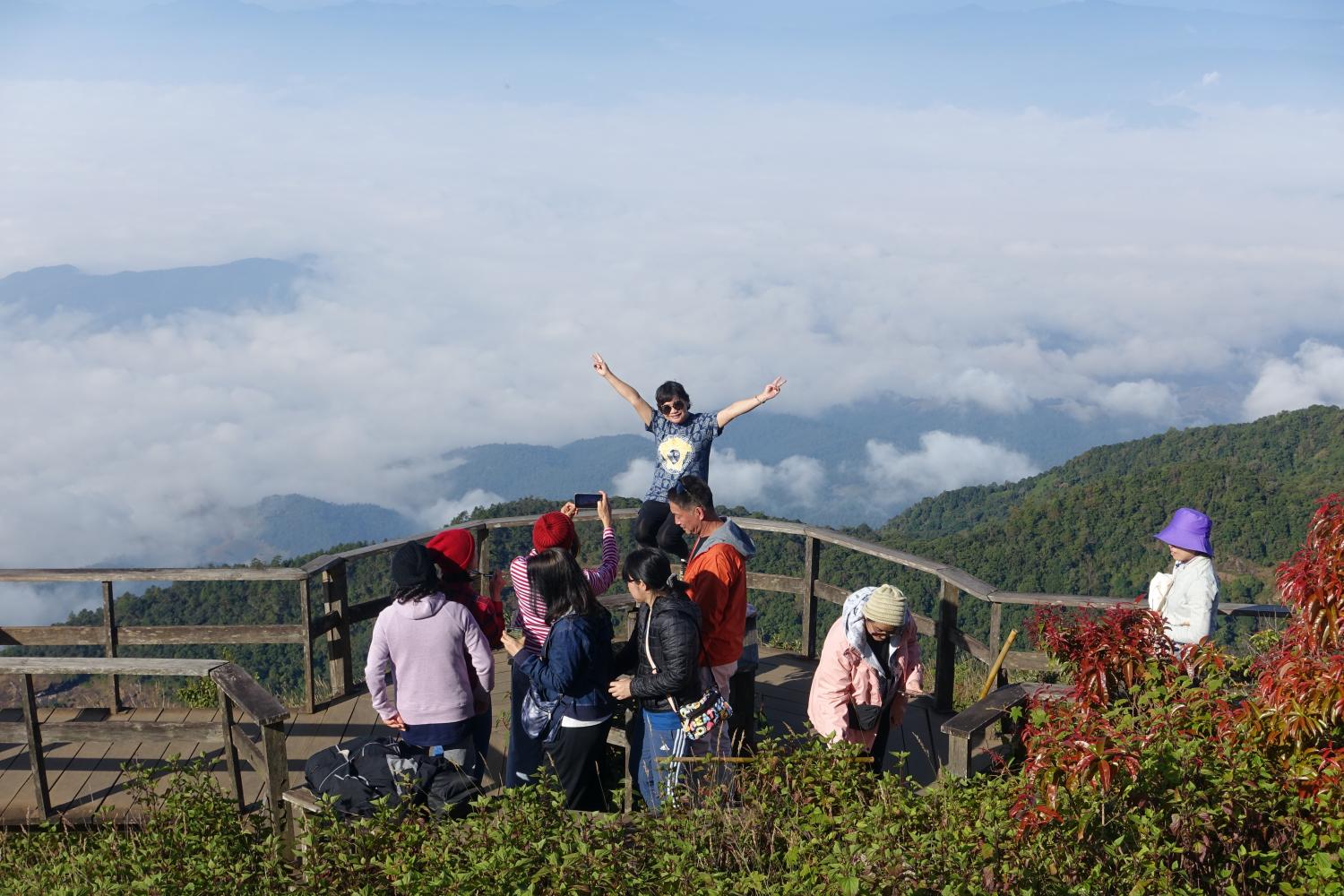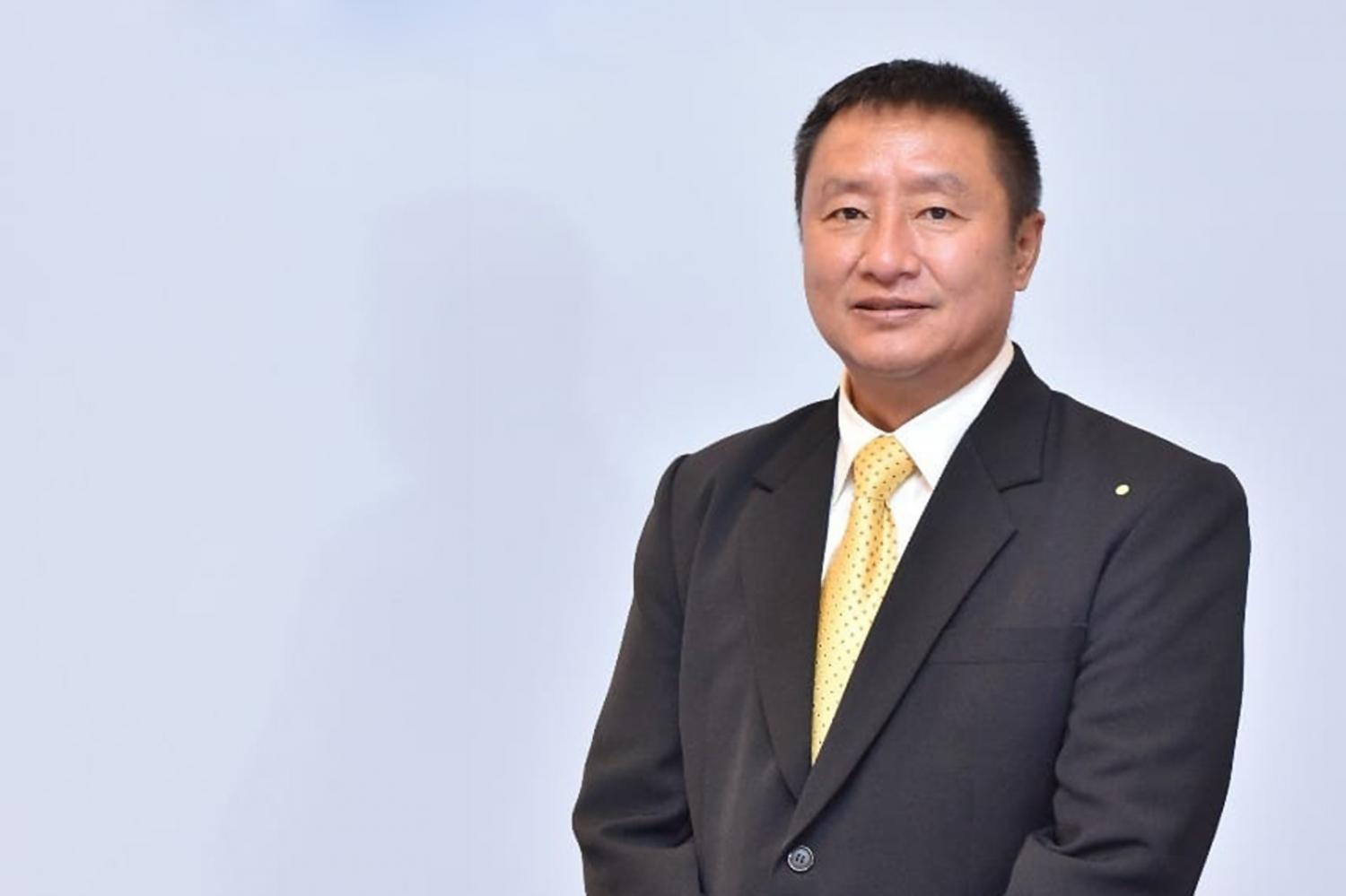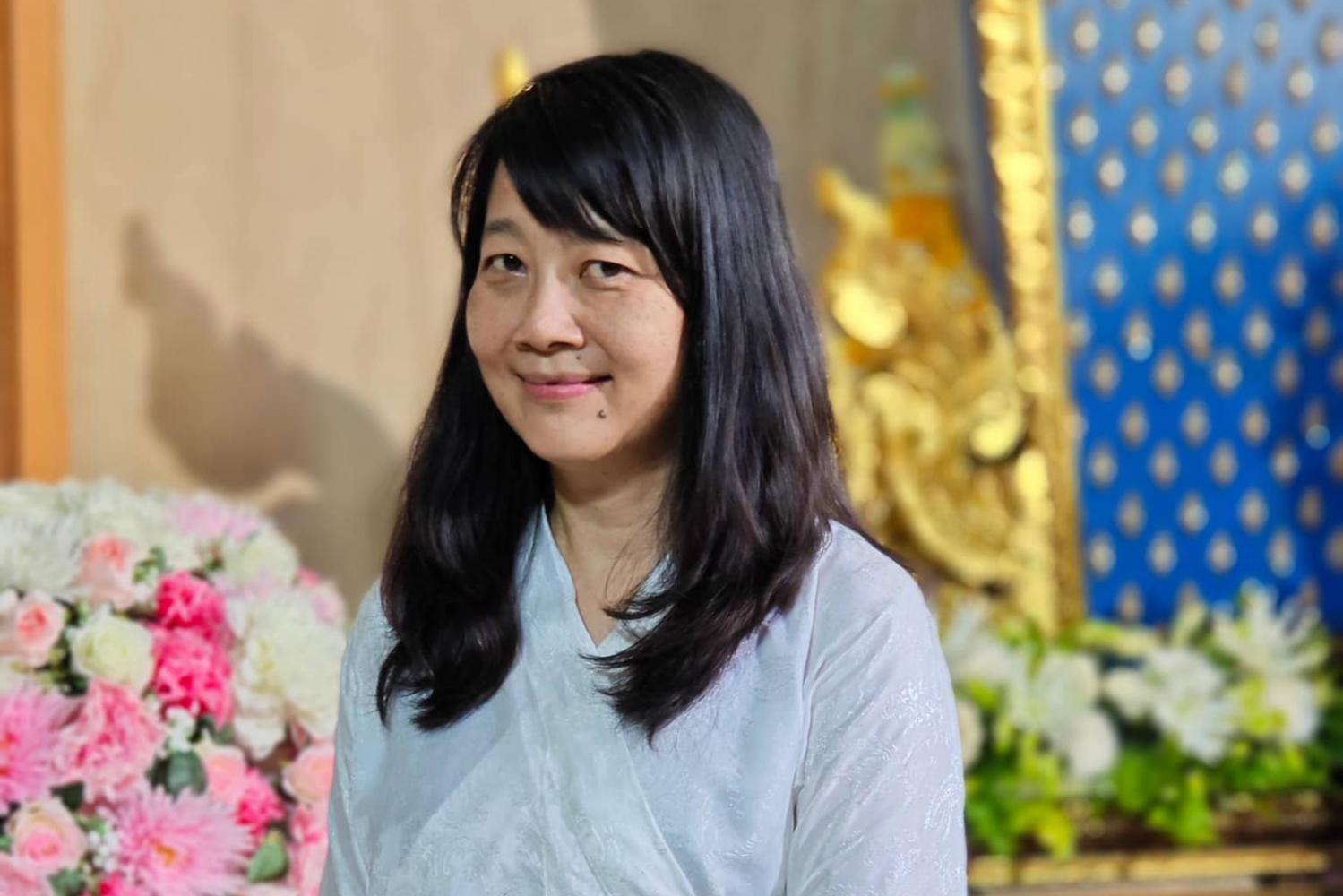Hoteliers and tourism entrepreneurs in Chiang Mai are calling on the government to step up gun controls to ensure safety for the tourism sector after the shooting incident at Siam Paragon shopping mall on Oct 3 hit Chinese travellers' confidence in Thailand.
About 60,000 tourists from the country have cancelled their trips to Thailand after the Siam Paragon shooting which left three dead — including one Chinese tourist — and four injured. Airports of Thailand data showed the number of Chinese arrivals has declined by 9.2% from 650,000 to 590,000 visitors following the incident.
China was Thailand’s biggest overseas tourism market before the pandemic, with around 11 million Chinese arrivals in 2019.
However, tourism authorities expect less than half that number, or about 5 million, to visit the country this year.

A tourist takes a photo of her friend at Kew Mae Pan viewpoint on the Inthanon mountains in Chiang Mai’s Chom Thong district. (Photo: Varuth Hirunyatheb)
Chiang Mai welcomes the largest number of Chinese tourists, so much so that five Chinese airlines have opened routes to the province.
They are Juneyao Airlines, Spring Airlines, China Eastern Airlines, Sichuan Airlines and Air China.
The Bangkok Post spoke with hoteliers, tourism entrepreneurs and tourism officials in Chiang Mai to assess the situation in the northern province after the shooting and gauge opinions on how the government can ensure safety for tourists from all parts of the world.
Mall shooting impact

Chutidech: Stilloptimistic
Chutidech Promkaewngarm, assistant manager at Standard Tour Co Ltd, a major tour operator in the northern region, told the Bangkok Post the death of a Chinese woman during the shooting spree would temporarily affect confidence among tourists.
He said that even though not all reservations made by Chinese tour groups had been cancelled, many had nevertheless postponed their trips to Thailand.
He said many Chinese netizens posted that they would never visit a country where gun possession is not illegal, while witnesses at the scene shared their experience on Chinese social media platform Weibo that their first trip to Thailand would also be their last.
“The number of Chinese tourists is now less than 50% of that in 2019 or before Covid-19,” Mr Chutidech added.
He said Standard Tour had operated 100% of Chinese tour groups back in 2019, a monthly average of 20,000 people. Currently, about 8,000-9,000 Chinese tourists are brought here by his company each month, with over 70% consisting of family groups.
With China facing its own economic difficulties, Mr Chutidech said the number of Chinese tourists might have dropped due to several factors besides the shooting in Bangkok.
“Many industries in China have not fully recovered. We need to keep an eye out during the high season and major holidays such as Loy Krathong, New Year’s Day and Songkran if Chinese tourists are to flock back in,” he said.
However, Mr Chutidech said he is optimistic and believes the tourism industry in the North should keep a positive mindset.
In November, Chiang Mai Airport will open 24 hours a day, maximising its capacity to handle more flights.
Tougher gun controls

Somrit: ‘Publicimage takes hit’
Somrit Haikum, managing director at Pacific World Chiangmai and vice president of Chiang Mai Chamber of Commerce, told the Bangkok Post the shooting was not a typical incident likely to hit tourists’ confidence.
However, the government must execute preventive measures to avoid a repetition, such as stepping up firearms control measures.
Mr Somrit said Thailand must also mend its reputation and approach new markets in Europe, the Middle East and East Asia to reduce its reliance on visitors from one country.
He said tourist accommodation in the northern region should also shift to an environmentally friendly model as many tourists now pay attention to things such as carbon-neutral travel.
“The Chiang Mai Chamber of Commerce is closely observing the situation. If there is a serious, long-term effect [from the shooting incident], Thailand and the North will lose tourism revenue. We will need to wait and see for a few months if tourism is badly affected,” said Mr Somrit.

Paisarn: ‘Law enforcement key’
Paisarn Sukcharoen, president of the Northern Thai Hotel Association, said the incident has worried tour operators and entrepreneurs whose careers depend on tourism.
He said that over 30% of hotel bookings had immediately been postponed, and even though there might not be signs of long-term damage to the country’s tourism, the number of Chinese tourists coming in during high season must be reassessed.
Mr Paisarn said he believes hotel occupancy during Oct-Nov will certainly drop.
Not only has the number of Chinese tourists fallen below 2019 levels, but tour operators in the South also reported that Malaysian tourists have cancelled their trips to Thailand.
“Gun control measures will restore a certain amount of confidence, but what matters is how [the government] executes them.”
Associations of tour operators and business sectors say there should be incentives to boost tourism, and recently, the government amended the Building Control Act, which allows small hotel entrepreneurs to list their buildings as licensed hotels.
Mr Paisarn said if tourists’ confidence is not restored, the nation’s tourism industry will be hurt as it is still recovering from the pandemic’s impact on tourism and the economy.
Visa-free entry

Patthara-anong: Forecast ‘too high’
Patthara-anong Na Chiang Mai, director of the Tourism Authority of Thailand’s (TAT) Northern Region, said: ”The visa exemption introduced by the government, available until February next year or throughout the high season, is continuing to attract more tourists from China and Kazakhstan.”
However, the TAT’s prediction of five million Chinese tourists has proved to be optimistic, she said.
According to the data, the total number of Chinese visitors in 2023 might be over 4.2 million people.
During the third quarter, there were about 1.8 million Chinese visitors who stayed in Thailand for an average of 4-10 days per trip and spent about 30,000-100,000 baht per person.
Ms Patthara-anong said that, during January-September, 156,102 Chinese visitors flew directly from China, 62,626 came from Taiwan, 38,457 visitors from Hong Kong and 37,000 from Malaysia.


